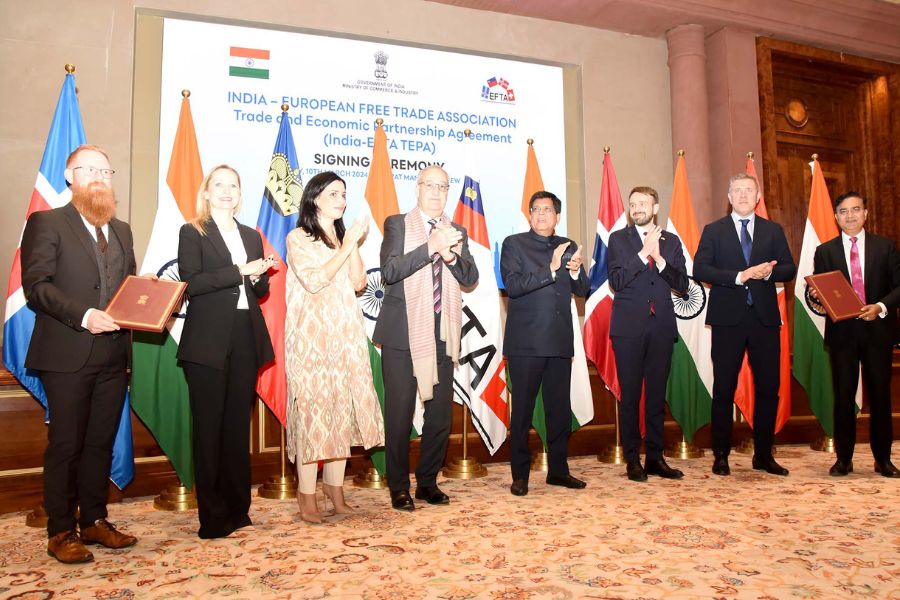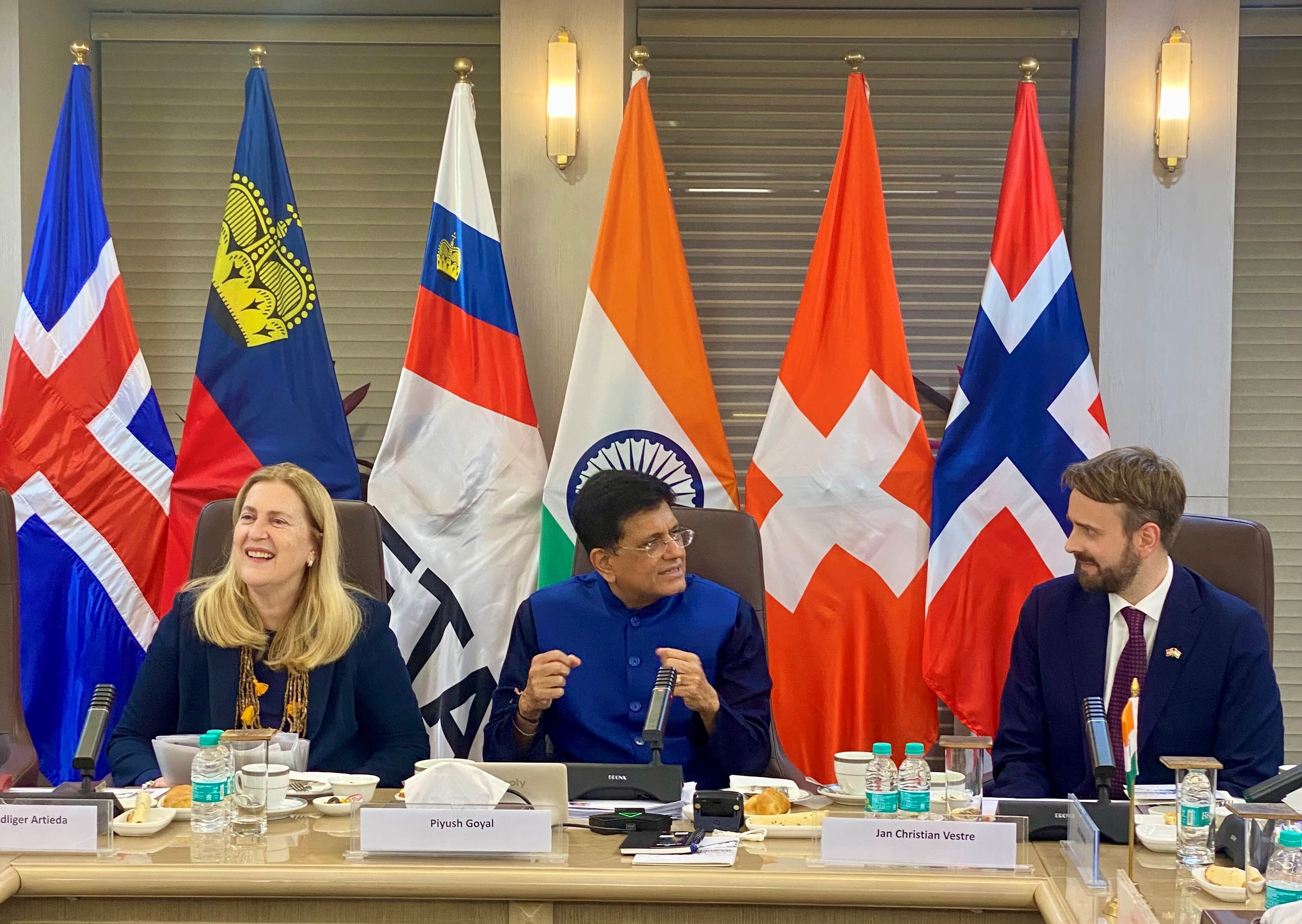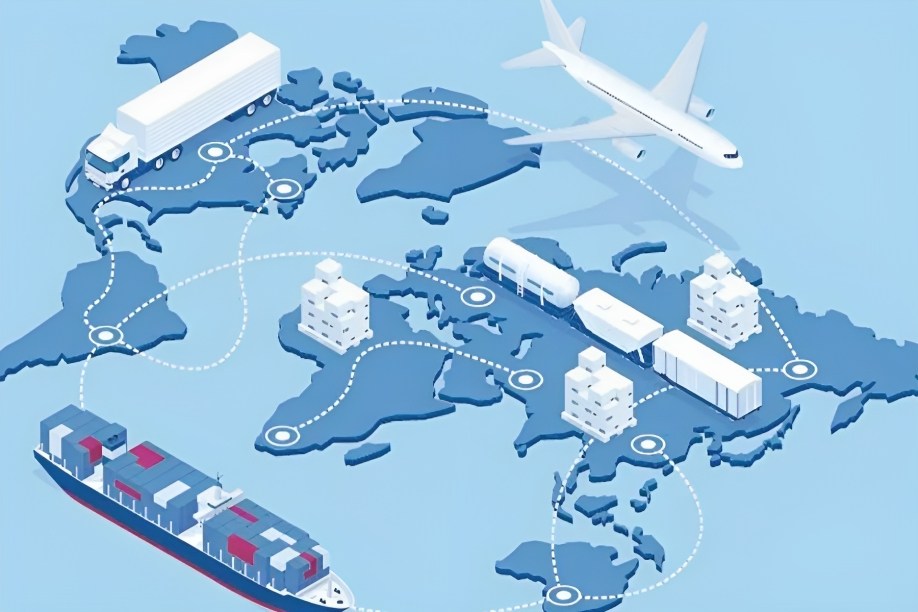Poland has a well-developed R&D and startup ecosystem
Ada Dyndo, Head of Foreign Trade Office in Mumbai, Polish Investment and Trade Agency (PAIH) talks about trade and investment opportunities between India and Poland. She emphasises that Poland is one of the most investment friendly countries in Central Europe with a highly developed ecosystem for startups.

IBT: What is your take on the current stature and future trajectory of India-Poland trade relations? How can these be bolstered in the future ?
Ada Dyndo: As a trading partner for India, Poland represents a great business potential. It is the 5th largest country in the European Union in terms of the number of inhabitant, 6th in terms of size, and the largest trade partner and export destination in the Central European region. Since September 2019, Warsaw and New Delhi are connected with direct LOT Polish Airlines connection, which is an important step towards easier business cooperation.
On the occasion of the inauguration of LOT flight, Polish Investment and Trade Agency (PAIH) organised Poland-India Business Forum on September 13, 2019 in New Delhi, focusing on the most perspectives sector for mutual cooperation i.e. clean energy, waste management, smart cities, AI, IT. Besides passengers connectivity, the direct flight facilitates transport of goods between two countries.
Recently LOT received the CEIV Pharma certificate of the International Air Transport Association that confirms the highest standard to carry medicines and valuable pharmaceutical products with the highest global standard. That is particularly important in terms of Polish-Indian pharmaceutical cooperation. Poland’s import of drugs from India was worth over US$ 77 million last year.
Bilateral trade between Poland and India has been growing steadily in recent years. In 2019, the bilateral trade turnover amounted to US$ 2.54 billion. Poland’s exports to India were at US$ 730 million. For India, Poland remains the largest export destination in the Central European region. Indian exports to Poland stood at US$ 2.12 billion in 2019. The most popular goods imported from India are textiles, agri-food products, shoes, pharmaceutical drugs and organic chemical drugs.
For years, Poland’s exports to India have been dominated by coke, semi-coke, retort coal. As an example Poland-based Jastrzębska Społka Weglowa (JSW), the biggest European coking coal and metallurgical coke producer, supplies coke to ArcelorMittal Nippon Steel India’s Hazira plant in western India.
Poland is a world leader in the mining sector and can offer to India, not only coke but also complex solutions and the most modern machinery, equipment and eco-friendly mining technologies. India has over 1,500 mines and 95 minerals are mined. Therefore, the sector remains one of the most prospective for Poland-India cooperation.
IBT: What impact has COVID-19 had on the bilateral trade? What areas can the two countries explore to reconstruct their economies in a mutually beneficial manner?
Ada Dyndo: Poland and India were both powerful economies in their respective regions before the COVID-19 era. India is the economic leader of South Asia and Poland is the largest market in Central and Eastern Europe. The pandemic has indeed brought disruption in business and supply chains and in effect the bilateral trade numbers.
At the beginning of the lockdown in India in April 2020, exports from Poland to India decreased by 68.3% in comparison to the previous year. The bilateral trade numbers for the first four months of 2020 show that Poland’s exports to India decreased by 15.6%. It is too early to assess the total impact of COVID-19 on bilateral trade. Data for the second quarter of 2020 is still under analysis. In India, some parts of the country are under lockdown in August and regular international flight services are still suspended.
There is a need to keep trade flowing, both to ensure the supply of products and to continue already existing good cooperation between the Polish and Indian companies. Waste management is definitely among the opportunities that should be explored more.
India’s waste management sector will be worth nearly US$ 65 billion by 2030 with an annual growth rate of around 7%. In the face of a growing population, urban development and a problem with air and land pollution, there is a need for modern technologies and machinery. Polish companies can offer complex waste management solutions, as well as advanced machinery.
IBT: What are the major sectors where Poland is looking to enhance exports to India? Conversely, what are the critical sectors where you see scope for Indian companies to enhance trade and investment with Poland?
Ada Dyndo: The disruptions caused by the virus outbreak have left a deep impact on consumer behaviour and preferences, for example in the food and cosmetic sectors. Current data shows that Indians spend more money on food than earlier. The consumers in big cities are looking for new products as they try different cuisines. Also, they are choosing more healthy options, as well as products with longer expire date.
The food sector is one of the most important and fastest growing branches of the Polish economy. The Indian market holds potential for Polish food products and specialties such as dairy, especially cheese and cottage cheese, gluten-free products or healthy fruit juices and beverages.
As the European leader in production of apples, Poland has commenced exports of fresh fruits to India in recent years. In 2019, volume exports of Polish apples and pears to India increased; wherein, value has increased by 85% to US$ 8.6 million in the first quarter of 2019.The trend will continue as Indian importers keep asking for contacts to Polish producers.
The cosmetics sector, in which Polish companies already have a well-established presence and globally recognized brands, is considered to be another promising area of Polish-Indian collaboration. In India you can find shops of Polish colour cosmetic brands such as Inglot and Paese.
With the outbreak of COVID-19, there is an opportunity for dermo-cosmetic brands and natural products as health concerns and self-care consciousness have increased due to the pandemic. The trend will continue in India, therefore, distributors should consider Polish manufacturers of dermocosmetics, who have created a series focused on skin problems.
Moreover, many Polish companies combine modern technologies with the use of natural components. They base their recipes on typically Slavic ingredients – linden tree flower, birch, chamomile or calendula, which might be regarded as interesting and exotic for the Indian market.
IBT: Of late, the Indian government is embracing quite a few initiatives (eg. land availability, Make in India, initiatives related to sectors like electronics industry, etc) in order to project itself as an attractive manufacturing hub. What investment opportunities does this present for Polish companies in India?
Ada Dyndo: The initiatives of the Government of India and states for investment projects aim to encourage foreign companies to set up production facilities and make India the centre of the global supply chain. Recently introduced changes regarding foreign investment in India towards all neighbouring countries will primarily affect the technology industry and start-ups, where the share of Chinese investors is the highest. It implies opportunities for JVs with Polish companies willing to share their know-how with Indian partners.
The Make in India programme offers possibilities in food processing cooperation. Despite a huge market of over 1.3 billion people, India processes only 7.7% of food, as Harsimrat Kaur Badal, Minister of Food Processing, pointed out at the Food Summit in Copenhagen last year.
It is estimated that by 2024, India’s food processing industry will potentially attract US$ 33 billion in investments and generate employment for 9 million people. The Indian Food Safety and Standards Authority plans to invest approximately US$ 72.3 million in food testing infrastructure by upgrading existing laboratories and establishing new ones. It would be an opportunity for Polish food processing companies.
At present, Polish investment in India is the largest among Central and Eastern European Countries. However, there is more potential to be explored. Polish investors in India include among others:
• AIUT – Based in Mumbai, offers solutions in the field of production automation
• Billennium – an IT company that opened its operations more than three years ago in Pune
• Can-Pack – glass bottles manufacturing units and beverage cans factories in Maharashtra and Haryana
• Ekolog – Bengaluru-based company that focuses on clean technologies
• Toruńskie Zaklady Materialow Opatrunkowych (TZMO) – With a presence of over 14 years in India, it runs a factory of sanitary materials for women in Dindigul, Tamil Nadu.
The total Polish investment in India is about US$ 600 million.
IBT: How do you see trade and investment shaping up for both countries over the next decade in the emerging post-COVID international scenario?
Ada Dyndo: Indian companies will keep looking for new places to invest in Europe and Poland will remain one of the key investment destinations. Recently, Poland has been ranked as the 3rd most attractive country for investors post-COVID, after Singapore and UK, according to the CEO World study.
Furthermore, due to its central location, Poland is often considered a natural trade partner for international companies and a gateway towards the rest of the continent. Poland is located in the heart of Europe, which makes it a perfect investment location for companies wishing to export products both to the East and the West.
For more than 20 years, like no other country in Central & Eastern Europe, Poland has attracted a significant amount of foreign capital – just in 2018 it attracted US$ 15.3 billion in foreign direct investment (7% share in the European market) in 323 projects. The country offers a business friendly environment, due to its economic stability – for over 20 years average GDP growth was around 4.1%.
In the past years Poland has been one of the top Central and Eastern Europe countries in Ease of Doing Business Ranking. Poland’s competitive advantage is modern technology. In Poland there is well-developed R&D infrastructure and EU funds for innovation and start-ups. In effect 40% of all start-ups in the region are based in Poland. A business-oriented culture of start-ups has delivered products of global quality, such as Polish CD Project’s Witcher video games, which are well known in India.
Poland has already been recognised by investors from India. Indian investments in Poland are valued at over US$ 3 billion and include companies that are into outsourcing sectors, such as GE Money, Genpact, Glenmark Pharmaceuticals, Infosys, KPIT Infosystems, HCL, Tata Consultancy Services, Wipro. Others include ArcelorMittal, Essel Propack, Novo Tech, Rishabh Instruments (acquired Lumel). In the past few years, Poland has received investments from Alliance Rentals, HCL Technologies and Varroc Lighting Systems, with the support of Polish Investment and Trade Agency.
Ada Dyndo is the Head of Polish Investment and Trade Agency (PAIH) in India. Since 2018 she supports Poland-India business cooperation. Ada has spent over 5 years living in South and South-East Asia. She speaks English, French, Hindi and Urdu and is based in Mumbai.
Polish Investment and Trade Agency (PAIH) supports both Polish companies in exporting their products and services around the world, and foreign potential investors in Poland by providing comprehensive and up-to-date information services.













Leave a comment